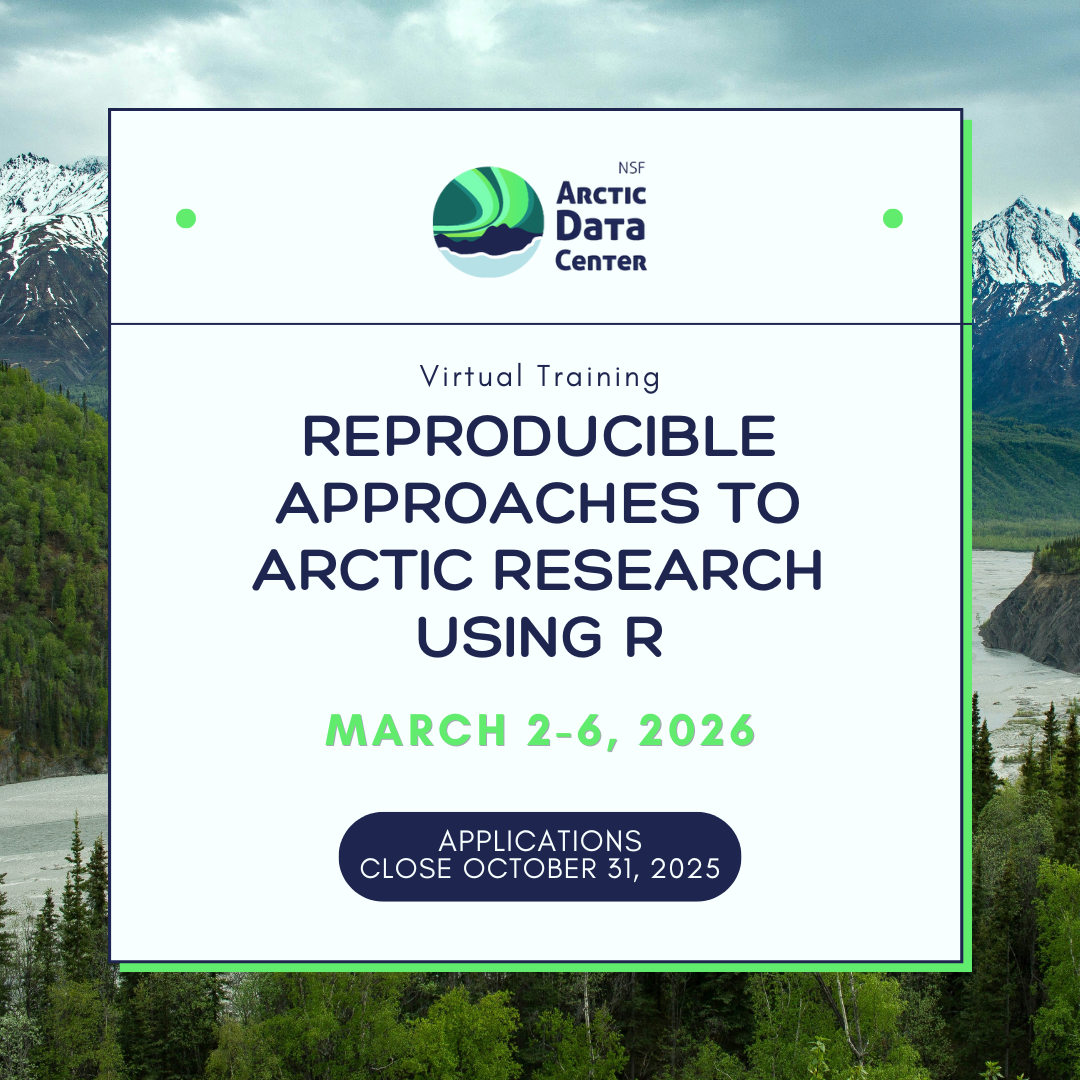Each year, our training and outreach staff help provide hands-on training at Arctic research conferences and in dedicated training sessions targeting early-career and under-represented populations. Training and outreach focus on effective means for long-term data management, following a curriculum developed and refined by the open science community.
Upcoming Course: March 2-6, 2026

Applications closed on October 31st, 2025 for our Spring 2026 course Reproducible Approaches to Arctic Research Using R. This training is held on Zoom (in Pacific Time) and will be our only training of 2026. Materials will be published online shortly after the course.
